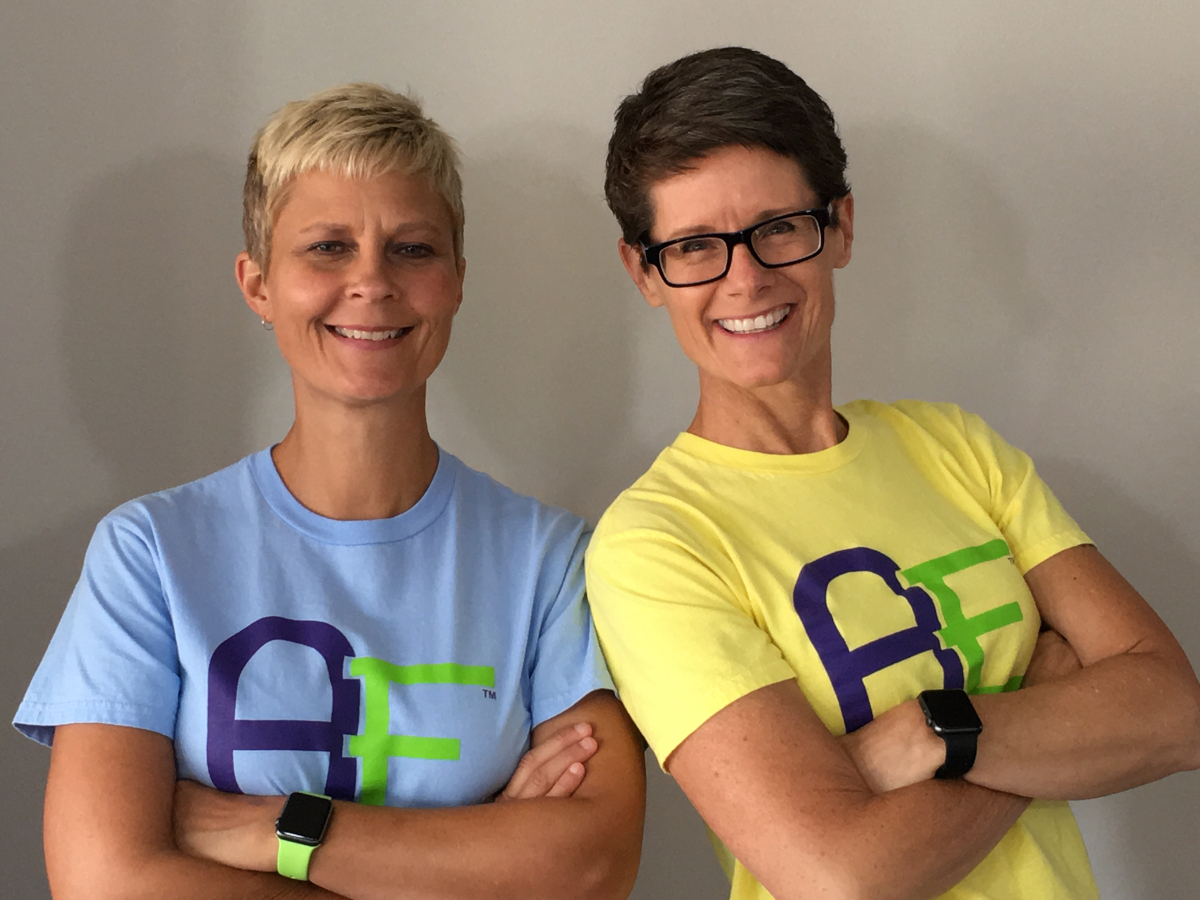Therapists Cindy and Christina Hardin-Weiss have been experimenting with being social media influencers, posting how-to videos on various social media sites since 2015. At the time, their videos primarily focused on home health topics.
We realized that the caregivers and patients needed a lot more education, so we started making quick little videos for them,” Christina says. “We would do paperwork with folks while they watched the videos we made.”
Eventually, these modern entrepreneurs realized that making the videos and educating the public could be a business in and of itself, and in 2018, they officially started Adaptive Equipment & Caregiving Corner — and launched their careers as social media influencers.
“We went live in January of 2020 and then immediately went into quarantine in March,” Christina says. “Don’t start a small business during a pandemic. We initially marketed to hospitals, insurance companies, beneficiaries, nursing homes, home health, area agencies on aging, assisted technologies programs, and we sell products to individuals but prefer to sell to companies.”
Since 2020, they’ve amassed 3.6 million views on YouTube, 7.8 million on Instagram and 9.4 million on TikTok.
“Our message is simple,” Cindy says. “What is the product, who might benefit from the product and where can people find the product?”
Their campy and informational videos have slowly but steadily amassed a large following.
“Sometimes we just end up on TikTok feeds, and we don’t know why,” Christina says. “What we do is not sexy. We don’t ever expect to go viral. When we show up to people, it’s totally organic. That’s when we get some comments that are not great because they say things like, ‘You’re just two old ladies on TikTok.’ Which we are, so we’re trying to use it in like a motherly kind of way.”
“Well, except for that one video,” Cindy interjects. She explains a 28-second video of her trying on compression socks went viral.
“That had a lot of views,” she adds. “We never figured it out.”
“We did use the hashtag stockings,” Christina says.
I didn’t have the heart to tell them that Cindy’s gams and the hashtag accidentally got them the foot fetish people.
I asked them how they were handling all the new attention.
“2024 is the year of the block. If you aren’t there to hear and be supportive of disabled people, you get the boot,” Christina says. “No more rudeness or weirdos.”
One frustrating aspect of being a same-sex couple working together in the Metro East and often parts of rural Missouri is that their clients often mistake them for sisters. That’s something many same-sex couples can relate to. I wonder how they navigate uncomfortable and, in some cases, dangerous conversations with people they’re trying to help.
“We try to meet people where their comfort level is,” Christina says. “If I think they can handle the truth, I’ll tell them. If not, I just say no when they ask and move on with the conversation.”
It would seem that even in the benign arena of medical equipment product reviews, it’s hard navigating the positive and negative aspects of having online notoriety.
“We want people to hear about products and not be focusing on who we are,” she adds.
The big difference between what Cindy and Cristina do and other related content out there is that they’re both therapists, so they know how to ask questions about products that suit a patient’s specific needs. They are experts in the field of raising awareness of more obscure or new products that suit specific individuals and circumstances.
“Sometimes videos by companies on products aren’t how-tos; sometimes they are just sales videos, which may increase risk of injury,” explains Cindy.
“We shop for different items from different vendors because it can be hard to find everything people need from different sites,” Christina adds. “We’re making the shopping experience more personal and decreasing the amount of clicks one must make in order to find what they need, and we help folks find discounts. Caregiving is not only hard on a body but also hard on a wallet.”
“We’ve seen the outcomes for caregivers and patients when they find the right tool,” Cindy says. “Their whole lives can change.”
They put a seal of approval on videos of products that they’ve tested and vetted. And if an item doesn’t meet their criteria, they aren’t afraid to send it back to the company.
It’s all about keeping a person’s dignity.

